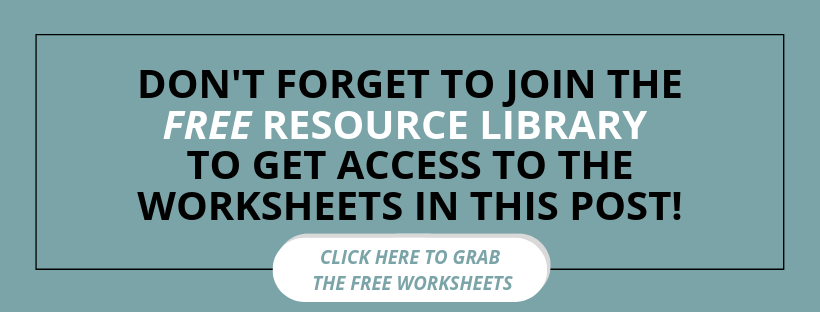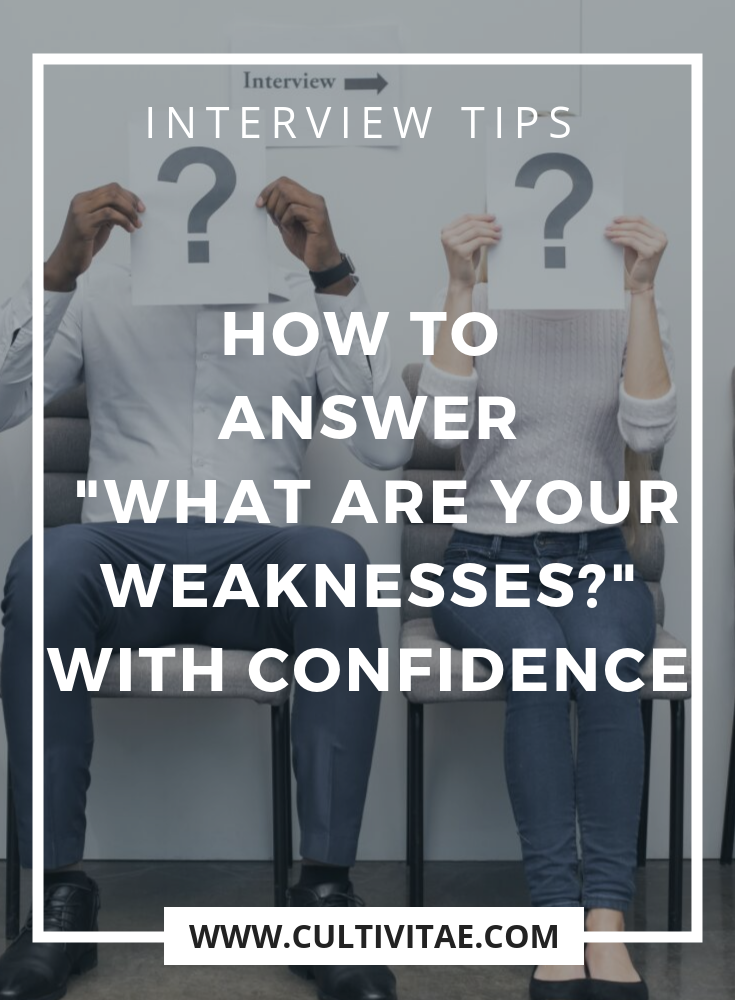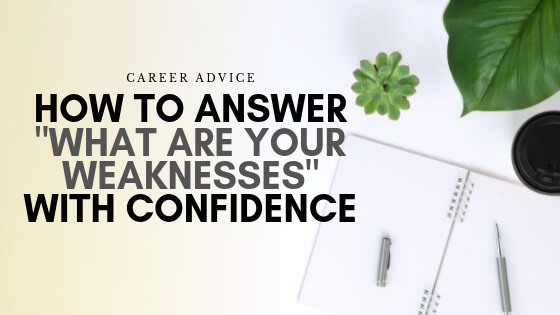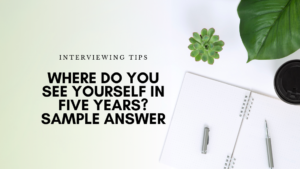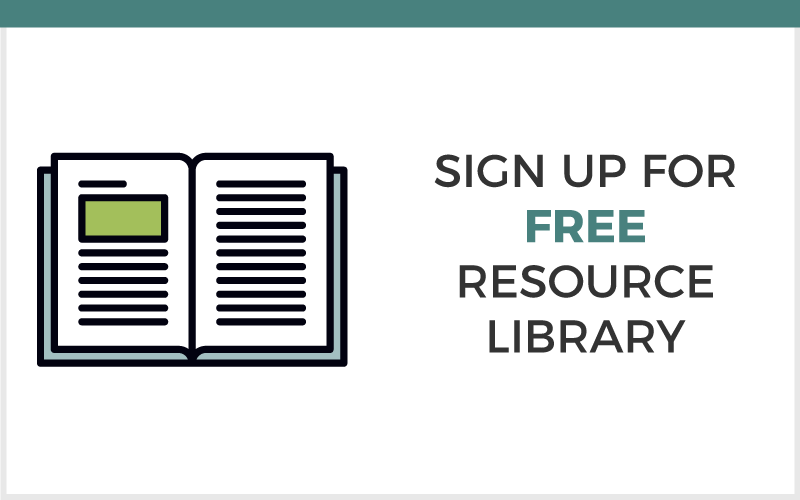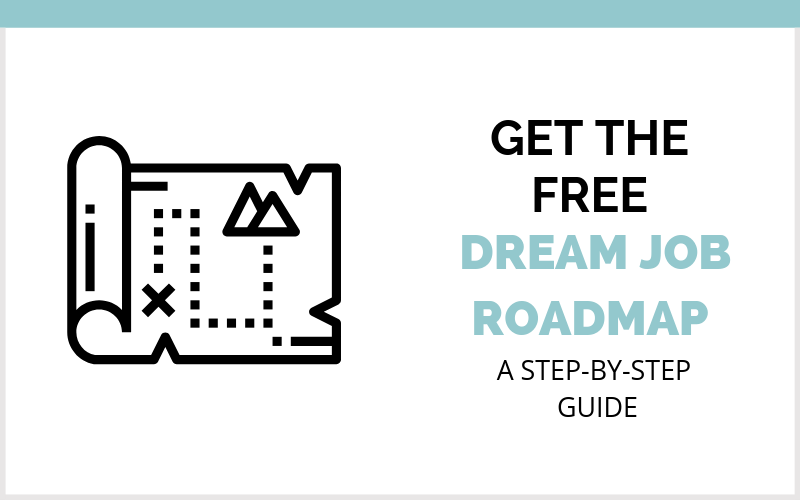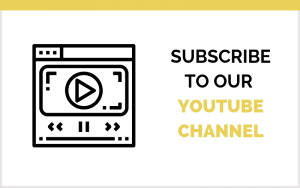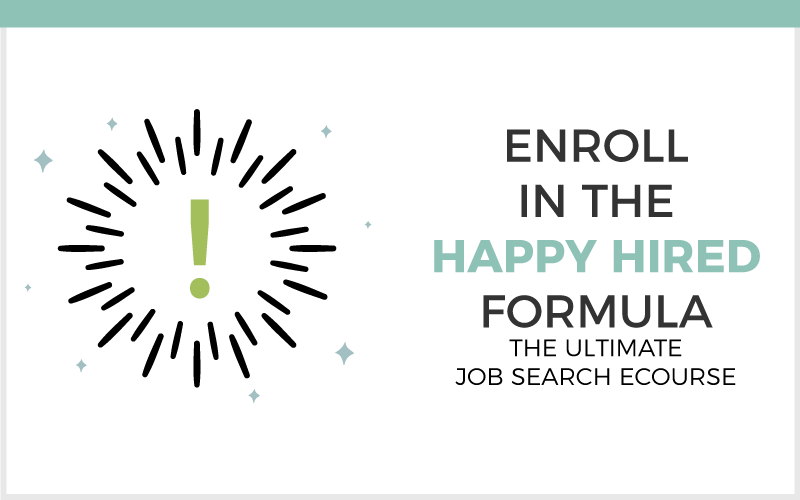Most of us are prepared to answer what our strengths are, but often don’t know how to answer, “what are your weaknesses?” with confidence. You can definitely anticipate this question coming up during an interview, so be sure to read on. Now this is a kind of a tricky question because a lot of us have been taught to share a weakness that’s actually concealed as a strength.
The inclination to do that is perfectly understandable. We naturally don’t want to shoot ourselves in the foot by revealing our areas of lack. But a lot of interviewers want to roll their eyes at this answer because it’s over-rehearsed and inauthentic. I actually had a client once tell me that an interviewer literally asked her, “tell me about one of your weaknesses and don’t give me one of those B.S. answers that are concealed as a strength.”
So in this article, I’m going to break down why interviewers ask this question and what they truly want to hear. We’ll also go over some examples along with a template you can use to craft your own response to this question! Watch the video below on how to answer, “what are your weaknesses?” with confidence, or continue reading on!
How To Answer “What Are Your Weaknesses?” With Confidence
So let’s dive in! First, I want to share that every single human has weaknesses and flaws. So it’s okay to share a legitimate shortcoming. The important thing is that you can demonstrate that you’re continuously working to improve on your weakness. The worst answer you could give is, “I don’t have any weaknesses”. We all have weaknesses. So I’m going to help you dive in and extract which weaknesses are appropriate for you to share during an interview.
RELATED: HOW TO GUESS WHAT QUESTIONS WILL COME UP IN YOUR INTERVIEW
When sharing our weakness, we’re not going to say that we’re a perfectionist or we tend to work too hard. We’re really going to give them a genuine weakness. You might be wondering, “what exactly is considered a weakness?” A weakness is something that you’re really working on improving, even though you might’ve fallen short in the past. You’ll want to have a very specific situation or scenario in mind to illustrate how you’re working through your weakness. You can talk about what it is that you’ve done to combat it and what the ultimate result has been. The improvement or result is the most important thing here.
RELATED: THE MOST UNDERRATED INTERVIEW TIP
Answering “What Are Your Weaknesses” With Confidence Using The S.A.R. Method
So in other words, we’re going to follow a very similar format to the behavioral questions called the S.A.R. method, which is as follows: Paint the Situation, the Task or the Action you took, and the ultimate Result you walked away with.
In order to answer this tricky question, I like to rephrase the question, “what are your weaknesses?” to, “tell me about a time that you personally grew or positively grew because of a difficult situation that you encountered.” With that rephrased question in mind, you can absolutely focus on one specific situation that demonstrates exactly what task or action you took while working on moving past your weakness. You’ll also want to focus heavily on the result of your actions.
How To Use The S.A.R. Method
Here’s an example: the situation might be that in the past I’ve had difficulty voicing my opinion when there were a lot of dominant voices in a meeting. The task and the action that I took might sound like,
“While I have always shied away from the spotlight, I’ve been working to become more assertive because I understand the importance of sharing feedback if it can benefit everyone. In fact, in this past year, I’ve really challenged myself. I actually built up the courage to start leaning in more into all of our team meetings. In our last meeting, I shared my perspective on why we should consider a new vendor based on some of the numbers I crunched. My recommendation was actually well received and adopted because of speaking up. We now have a new vendor who’s more responsive and allows us to say $15,000 every quarter due to the new contract rates we negotiated.”
As you can see from this example, I painted a picture of a specific moment where I had a perceived struggle, right? It was that I’m not as vocal about sharing my opinions when I’m in large meetings. However, I also backed it up with what I’ve done recently that showed my ability to work on this perceived weakness. In demonstrating that, I was able to share the winning outcomes, like my recommendations being adopted and my company saving $15,000 a quarter. Amazing, right? And that’s exactly what you want to share with your interviewer.
RELATED: THE KEY TO JOB SEARCH SUCCESS
Now It’s Your Turn!
All right, now it’s your turn. I want you to brainstorm the possible weaknesses you’ve encountered throughout your career history. Think not only about what allowed you to move past those weaknesses, but also what the ultimate result was.
So at the top of a piece of paper, write the question, “when did I positively grow from a lesser than ideal situation?” Then, draw three columns. In the very first column, I want you to be able to describe the situation in one or two sentences. What was happening that had triggered this perceived weakness of yours? In the middle column, write down the task or the action that you’ve taken to overcome this perceived weakness. And then the final column should talk about the ultimate result that stemmed from the action you took. And there you have it! You now have a weakness you can bring to the table to really illustrate what you’re actively improving upon.
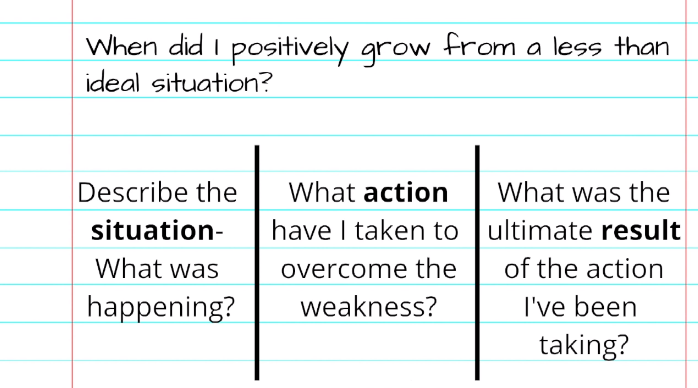
Putting It All Together
And now it’s time to put it all together. Using the S.A.R. method is an extremely helpful tool on how to answer “what are your weaknesses?” with confidence. So go ahead and follow along with the template below to come up with your very own weakness to present during the interview.
We’ll start by describing the situation.

Next, we’re going to move into the task and the action.

Finally, you’ll want to insert your ultimate result, which is the big win.

As you can see, a weakness can actually strengthen your application when you can demonstrate the ultimate tangible result. Resist the pull to identify yourself as a character flaw, such as, “I am a perfectionist or I am inflexible.” You want to focus on your flexibility, and showcase your ability to continuously improve and pursue personal development. I hope this strategy was helpful to you! Thanks for reading along, and be thinking about what positive result could come from your biggest weakness – there’s always room for improvement!
